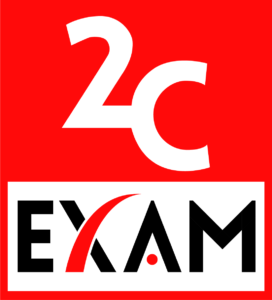According to the SFC Code of Conduct for Licensed Persons or Registered Persons regarding employee trading: licensed corporations/registered institutions (hereinafter referred to as companies) need to establish policies and inform employees in writing whether they are allowed to engage in personal trading in stocks, futures contracts, or leveraged foreign exchange contracts.
If the company allows employees to engage in personal trading or purchase securities, futures contracts, or leveraged foreign exchange trading contracts, the following is required:
Written policy outlining the conditions that employees must comply with when engaging in personal trading;
Employees must report all relevant accounts to management, including accounts of minor children and accounts in which the employee has a beneficial interest;
Generally, employees should conduct personal trading through their employer’s company or its affiliated companies;
If employees are allowed to trade personally through other brokers, copies of trade confirmations and account statements must be provided to company management;
Employee accounts and related accounts transactions must be recorded separately and clearly identified in the company’s records;
Management with no conflict of interest must supervise and review employee trading to prevent misconduct and ensure that it does not harm the interests of other clients.
In addition, a company may not knowingly trade securities or futures contracts for employees of another company unless it has obtained written consent from the other company.
Therefore, whether employees of Hong Kong licensed corporations/registered institutions can trade stocks mainly depends on whether their own company allows it, that is, the boss has the final say.
If allowed, it is not an immediate green light for trading stocks happily; employees still need to follow the company’s internal regulations. What internal regulations are usually in place?
Trade declaration and approval: Declare to the employer before making any transaction, and in some cases, obtain written approval from the company’s compliance department or supervisor before trading. This typically includes providing details about the securities, quantity, and price of the proposed transaction to ensure that the company understands the employee’s trading activity and prevents potential insider trading or conflicts of interest.
So, want to make a fortune in the stock market? Don’t forget to report to your boss first and get approval! Also, don’t hide your and your family’s trading activities!
Trading window periods: Trade within so-called “trading window periods.” These window periods typically begin after the company releases financial reports or other significant information to ensure that employees do not trade based on internal information.
So, have you heard any internal secrets? Don’t get excited! Never trade using this information; it is strictly forbidden!
Minimum holding period: Follow a minimum holding period, such as 30 or 60 days. This helps prevent employees from engaging in short-term trading based on internal information.
Bought stocks and want to sell them quickly? Don’t rush, take your time! Wait for 30 or 60 days before taking action.
Blacklist/restricted list: Prohibit or restrict trading in certain companies’ stocks, especially those related to the employer or clients. This helps prevent potential conflicts of interest and insider trading. Some stocks are off-limits; don’t touch them! Company resources are not for you to trade stocks with, and your trading activities must not affect the interests of the company and its clients; this is the bottom line!
Now, for a bonus question: if Xiao Mei is an employee of a Hong Kong asset management company, can she trade stocks? If so, what restrictions would apply?
-Xiao Mei may need to disclose and obtain approval from the company before engaging in personal trading.
-Xiao Mei may be prohibited from trading stocks held by the funds managed by the company to avoid conflicts of interest.
-Xiao Mei may need to follow a minimum holding period, such as 30 or 60 days, to prevent short-term trading.
-If Xiao Mei obtains non-public information about a company, she should comply with insider trading regulations and avoid trading while in possession of such information.
How can we help?
2CExam provides HKSI LE, IIQE, EAQE and SQE related exam preparation materials. We sell mock question banks for HKSI LE Papers 1, 2, 3, 5, 6, 7, 8, 9, 12 in Chinese and English; and bibles for HKSI LE Papers 1, 2, 6, 7, 8 in Chinese. We also offer 1 on 1 tutorial services. Besides, we have also made free tutorial videos for HKSI LE Papers 1, 2, 6, 7, 8, 12 and posted on public channels such as Youtube/ Bilibili/ Tencent/ Iqiyi. 2CExam has been an exam training expert for years. Should you need any help please visit www.2cexam.com or contact us through:
Phone +852 2110 9644 Email: [email protected] Wechat: hk2cexam WhatsApp: +852 9347 2064
Please support us by leaving comments and likes if you think this article helps you!
You can scan or click on the QR codes to visit our social media.
Latest Article
Categories
過往文章
Contact US
-
Phone:
+852 2110 9644
-
Email:
-
WhatsApp
+852 9347 2064
-
WeChat
hk2cexam
Interesting Articles
The differences between a SFC Responsible Officer (RO), HKMA Executive Officer (EO) and a Sale Representative (Rep)
The different regulatory agencies Before explaining the differences between a responsible officer (RO), HKMA’s executive officer (EO) and sales representative (Rep), you must first know that there are two regulatory agencies that regulates companies that are engaging in securities business: the Securities and Futures Commission (SFC) and Hong Kong Monetary Authority (HKMA).The regulatory…
What kind of updates will be made in different versions of IIQE study notes?
What updates will be made in the newest version of IIQE study notes has been a hot question from our clients. The answer may disappoint you or make you relieved. There are two kinds of major updates: Changes in Laws, Regulations and Regulatory Body There will not be unreasonable or unnecessary modifications in…
What kind of updates did the HKSI make in the LE study manual?
Many of our clients are frustrated with needing to retake the exam, or some are going to take the exam right before the HKSI is going to update the manual. They are concerned with what updates the HKSI would make on their study manual. Below we will uncover what differences will be commonly found between…
How to apply for an insurance intermediary IA license in Hong Kong?
Many students who have no experience in the insurance industry feel puzzled about the procedures regarding applying for a license. This article mainly teaches students how to prepare to apply for a insurance license. First of all, to apply for an insurance license, you need to meet the requirements of the “Fit and…
How to apply for an SFC Hong Kong Securities License?
Many students who have no experience in the securities industry feel puzzled about the procedures regarding applying for a license. This article mainly teaches students how to prepare to apply for a securities license. First, to apply for a securities license, you need to meet the ”Guidelines on Competence” issued by the securities and…
Which IIQE insurance exam paper is more difficult? Which is easier? I don’t have any insurance knowledge, where and how should I get started?
Which IIQE insurance exam paper is more difficult? Which is easier? There are 4 most popular papers in the IIQE exam: IIQE Paper 1, 2, 3, 5. If you sort by difficulty, IIQE Paper 1 will be the most difficult because the concepts and content are broad and have the most content compared to…
Which of the HKSI LE securities exams is more difficult? Which is easier? I haven’t studied finance before, where and how should I get started?
What are the contents of the HKSI LE exam papers? The Licensing Examination for Securities and Futures Intermediaries (HKSI LE) paper 1 is considered as the basic course for aspiring Securities and Futures Practitioners. Anyone who wishes to enter the industry – after the emergence of the securities examination system needs to take the…
Are the EAQE/SQE video courses on 2CExam’s Youtube channel still applicable to the exams today?
Are the EAQE/SQE video courses made by 2CExam a few years ago still applicable to the examinations today? In recent years, 2CExam has launched a series of online video courses for the EAQE/SQE exam. The courses integrate the most important content in the entire examination and are covered by a seasoned tutor from scratch.…
Are the IIQE Paper 1 video courses on 2CExam’s Youtube channel still applicable to the exams today?
Are the IIQE Paper 1 courses uploaded by 2CExam a few years ago still applicable to the exam? In recent years, 2CExam has launched a series of online video courses for the IIQE Paper insurance exam. The courses integrate the most important content in the entire exam paper and are covered by seasoned instructor from…
Are the HKSI LE Paper 1 video courses on 2CExam’s Youtube channel still applicable to the exams today?
Are the HKSI LE Paper 1 video courses made by 2CExam a few years ago still applicable to the examinations today? In recent years, 2CExam has launched a series of online video courses for the HKSI LE Papers. The courses integrate the most important content in the entire examination paper and are covered by…









